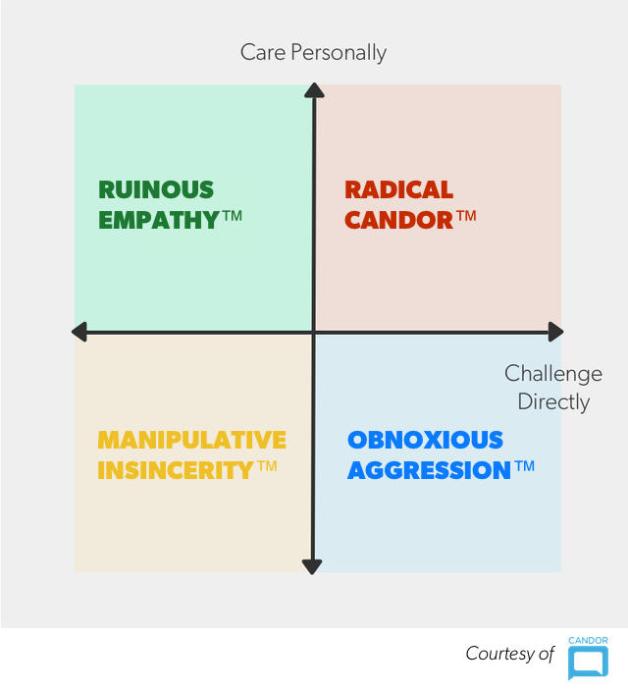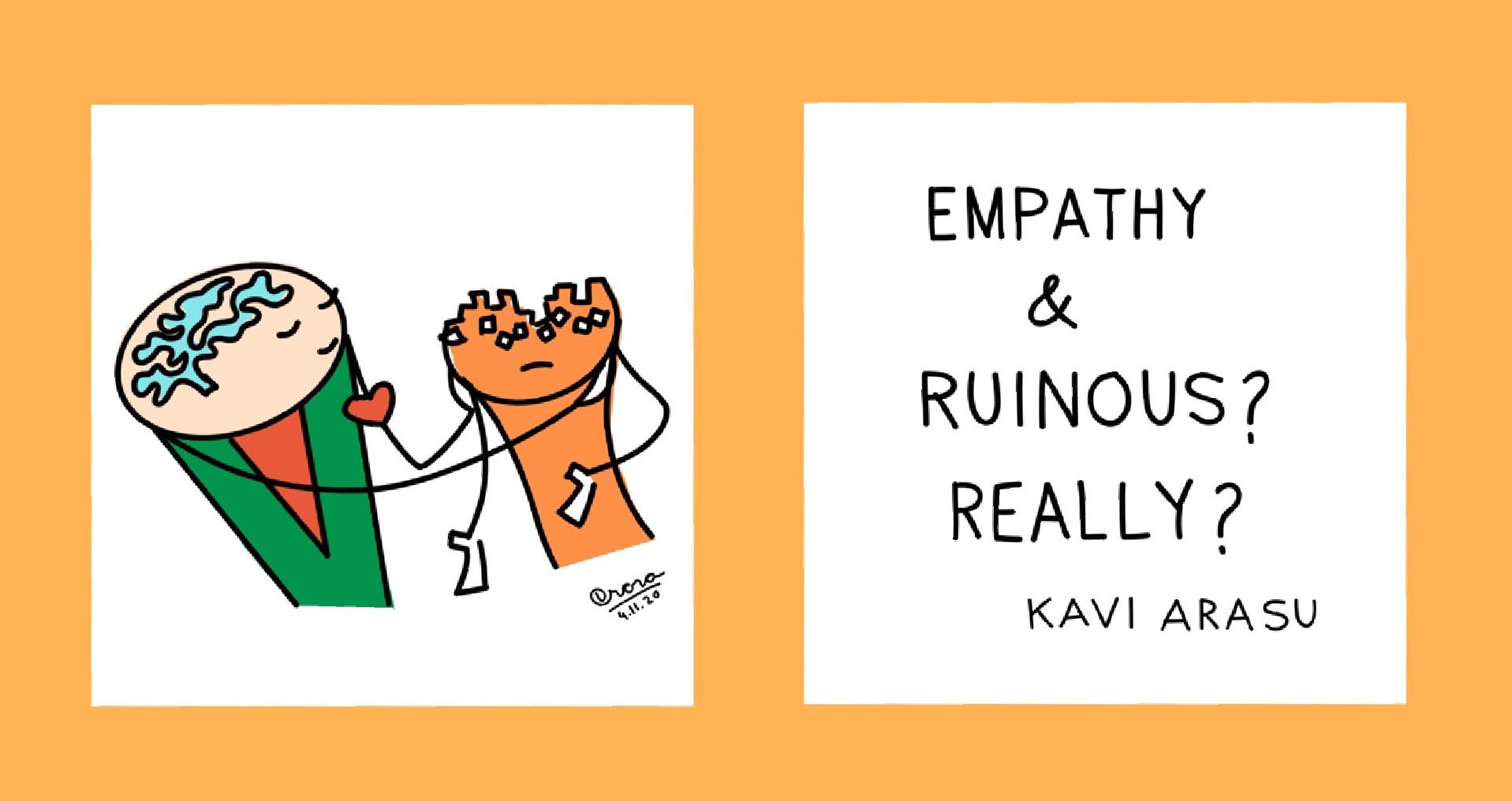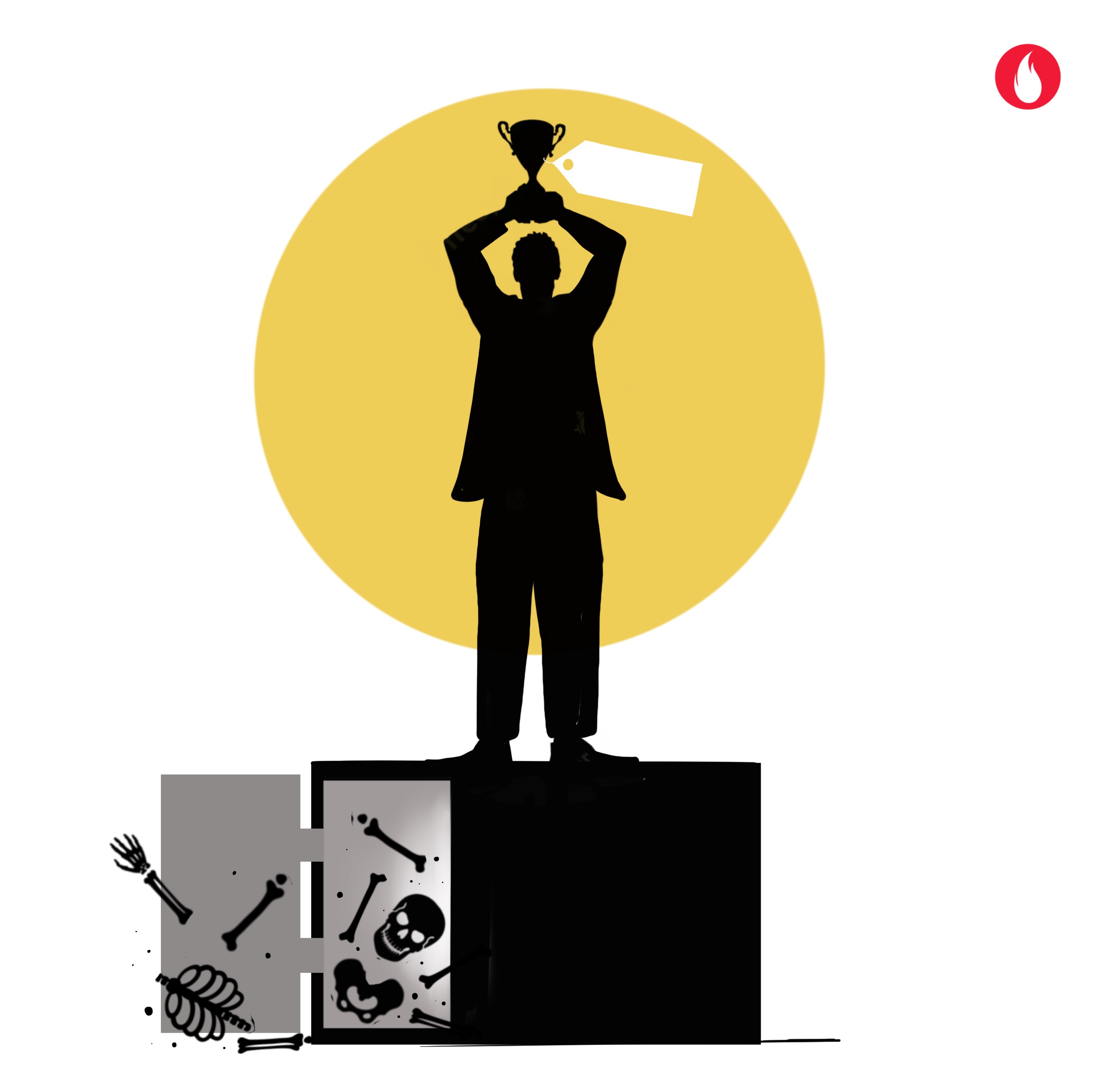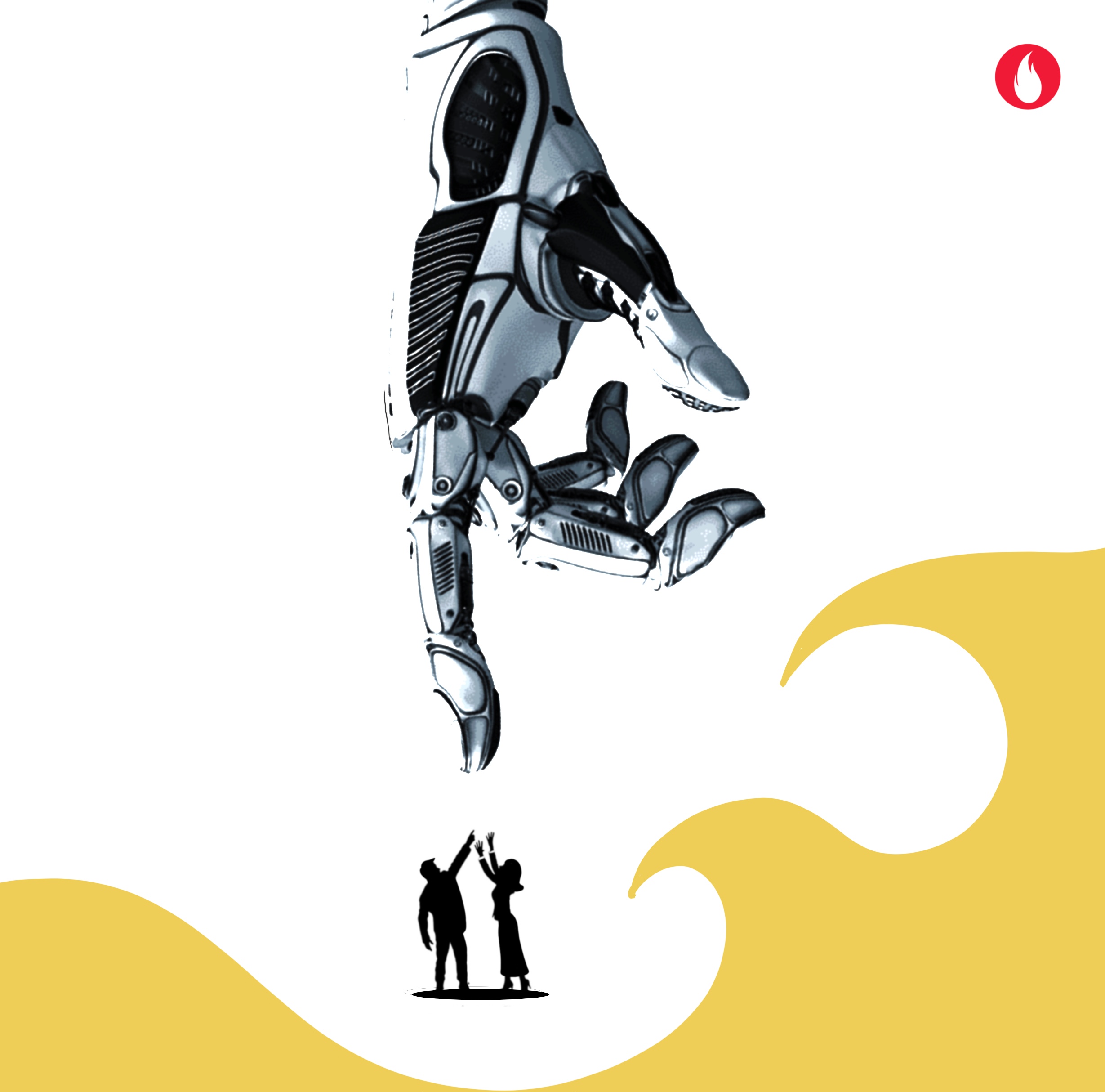“Do you really care?” That’s a question that I ask people managers often. Many a time the answer is a pronounced “yes”. Sometimes that question is greeted with a wistful sigh. Its swamp when managers speak of challenges they face in their team members and how difficult it is to say anything!
Let me explain some more. Managing other people and their expectations is not easy business. People are a messy bundle. Expectations, behaviours, feelings, actions, disappointments, motives, insecurities and what not.
Making a difference to people often emanates from a deep sense of care and regard for others. Care and regard beyond the self. This is not a call to be of service to the world. Promise. Stay with me.
A 2X2 matrix to the rescue
Kim Scott of the Radical Candor fame has a simple 2X2 matrix that I find, well, simple! The matrix runs on two axes. An axis of challenge and another on care. Much hard, honest feedback is well taken when given with care.

The managers who shaped my thinking were ones who very hard on me while staying invested in who I could become. To them, I owe the world. I owe them because they could have chosen to keep company of their own discomfort and no one would have known!
While the radical candor quadrant is simple to understand, What I am interested in delving on today are two other quadrants that I see more common. “Ruinous empathy” and “obnoxious aggression”.
The obnoxiously aggressive manager is more visible! The villain in the office hallways! The chap who wears ‘blunt directness’ as his only suit. A pain to work with and downright difficult. There are plenty of such managers. If you thought managers of this kind are bad, the ones with oodles of extra empathy can be devastating. “Ruinous empathy” is such an apt phrase!
But, Can empathy, of all things, cause ruin?
Simple answer. Yes it can.
When someone is going down the wrong track, calling it out and correcting it is not an optional exercise for managers. I would go to the extent of calling it a moral obligation. Yet, most managers do not do it. Why?
“It is an unpleasant task.”
“I don’t know how the other person will react”
“It’s just plain difficult”.
Another common one. “This feedback will hurt. He will feel bad”.
The pace of change and growth is often set by what is left unsaid. By what seems to be ‘tolerated’ by the the manager. There are other responses too.
“I give him enough hints”.
“I am waiting for the time of performance appraisal to convey all feedback at one go”! And the like.
All pointing to the fact that the hard conversation is a long way off.
Do you really care?
And that’s when this question comes in handy: “Do you really care?” Because if you do, you go beyond the immediate discomfort of the moment and talk. You make it a point to provide pointed feedback, challenge and yet demonstrate a degree of care. It’s not easy. But it is a necessary skillset to have.
It takes courage. A degree of humility. And a huge dose of curiosity. Courage to wade through the ambiguous and unpleasant air that hard feedback sometimes can produce. Humility to accept when proven wrong and a curiosity to explore beyond what’s obvious. Together! Much of my work is to help senior leaders examine their people actions through this triad. The results are always beyond fascinating!
So, what can you do?
When was the last time you had to give a team member some hard feedback that you shied from doing so? Ask yourself what’s stopping you?
Is it a lack of courage? Curiosity? Humility? Or, do you really care enough? What if I told you that it is a moral obligation as a people manager to develop your people?

The OWL Despatch
The OWL Despatch is a labour of love where I curate five interesting posts from the world that I am compelled to share. This is edition number Sixty Nine.
1. The story on Harry Houdini, risk and preparedness is mind blowing for me. It really made me sit down, think and redraw my plans. Perhaps it would have the same effect on you. Do not miss!
2. Daniel Kahneman’s System 1 and System 2 thinking got me to go slow and think. This post made me revisit all the changes since then. ” System 1 v System 2 is a brilliant mental model to explain the machinery of thought. It can help you understand why people make irrational decisions. Why often your gut feelings and intuitions are wrong…”
3. Why business leaders should try thinking like a comedian. I’d be honest here. The headline got me first. But very soon, the arguments were compelling. Here’s something that you work your way through.
4. Colleagues at Founding Fuel lead me to an essay called “Disaster planning for less crazy folk“. The stuff under “The prepared lifestyle” resonated. I realise that this is the second piece on preparedness in the selections this week. Perhaps it is an indication of my own thinking now. That doesn’t take away anything from the brilliance of this essay. Just brilliant!
5. I have always believed that compelling communication through images and graphics can make people think. This one is super cool. I loved it so much that I went back to it a few times. Try it. Stay with it. At the end of it, ask yourself what perspectives have shifted for you.
Reader’s Corner
Abhijit shared a quote this week that was powerful.
I’m on the side of the idea that actually a coherent narrative is the problem, not the solution. I’m interested in the psychoanalysis that’s about what is revealed in incoherence and in the implausible. People are most defensive when they’re most coherent and most plausible.
Adam Phillips
As usual, Deepak sends in the graphic. I am forever grateful to him and to you for staying on!
Spread the word. And the love. Of course, wear the mask. The virus is still around.



